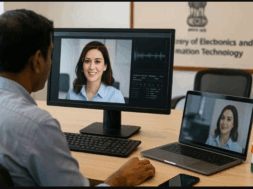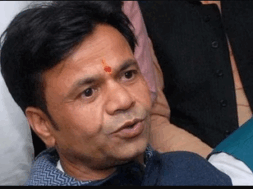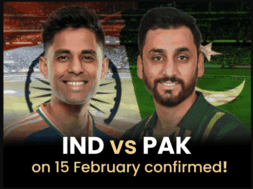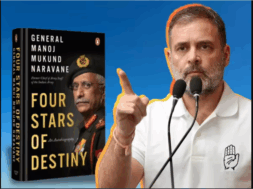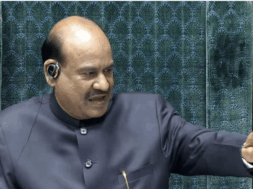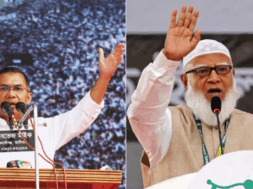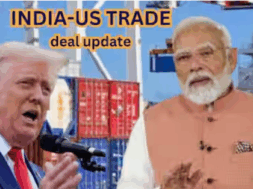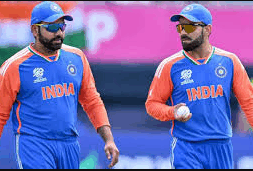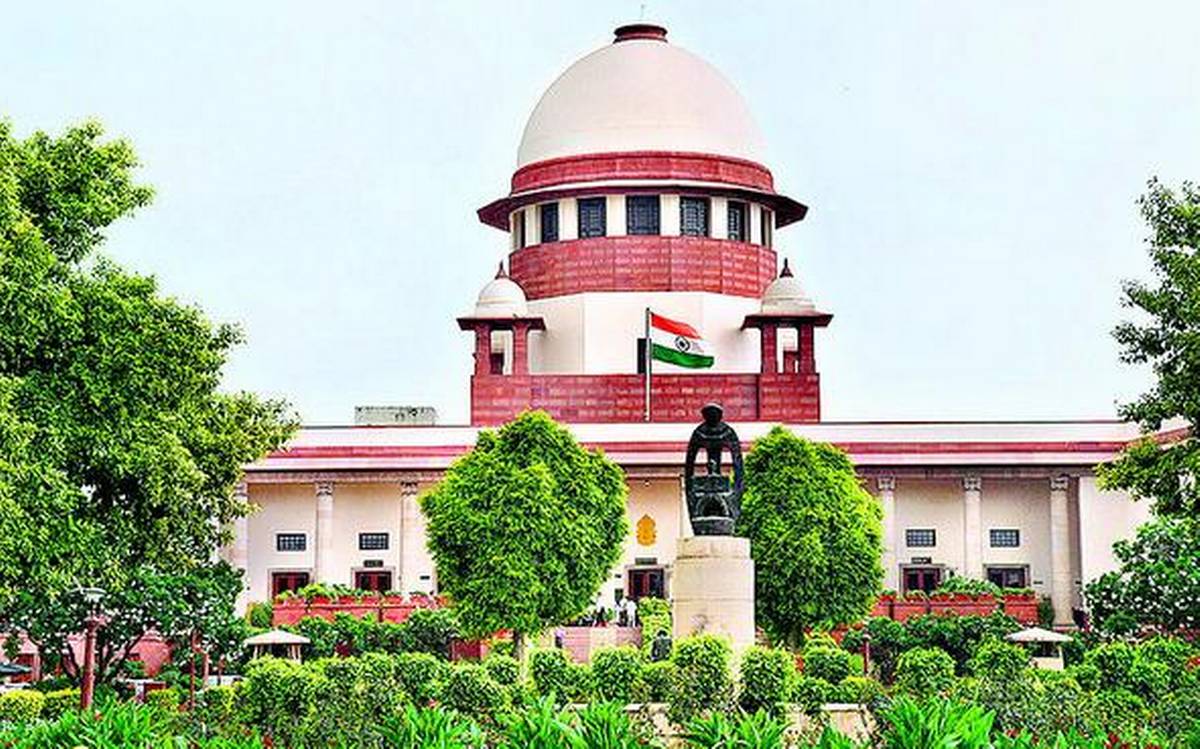
Supreme Court Warns Central, State Governments against Clampdown on Help-Seekers on Social Media
Manas Dasgupta
NEW DELHI, Apr 30: Contrary to some pro-BJP elements demanding the centre to “punish” the critics of the government on handling of the pandemic situation, the Supreme Court on Friday warned the central and the state governments against any clampdown on the people seeking help or spreading information through the social media about problems in some quarters.
“We don’t want any clampdown of information. We will treat it as a contempt of court if such grievances are considered for action. Let a strong message go to all the States and DGPs of States. Clampdown of information is contrary to basic precepts,” a special bench of Justices DY Chandrachud, L Nageswara Rao and S Ravindra Bhat said. The bench said any move by any State to punish citizens who take to the social media to seek help for oxygen cylinders, COVID-19 drugs, beds, hospitalisation, etc, amid a rampaging second wave would attract contempt of court action.
Both the Supreme Court and the Delhi High Court also came down heavily on the Delhi state government and the centre “not to play politics” and make united efforts to save the lives of the people. The apex court took strong exception to the “blame game” between the centre and the state government when the solicitor general Tushar Mehta claimed that oxygen shortage in Delhi was caused not by non-availability of the life-saving gas but because the Delhi government had no tanker to transport the gas. “If the Delhi government did not have tankers, can the centre make no arrangement to deliver the quota? Do you want the people to die when you play the blame game?” the court asked Mehta harshly.
The apex court also wondered why the centre was not taking cent per cent responsibility for procurement and distribution of vaccines to the states instead of leaving half on the states while keeping the other half with itself. Vaccine manufacturing was publicly funded and vaccines were public property, the court noted and asked “why cannot the government buy the entire doses of vaccines?”
As many people as well as a section of the media across the world had lately been attacking the Narendra Modi government for its failure to anticipate a possible second wave and prepare for a dreadful situation, many pro-BJP elements including some Bollywood celebrities have made their demand viral on the social media seeking stern actions against the critics of the government. Some of them claimed that by putting on the social media the reports of shortage of oxygen, medicines or hospital beds, they were lowering the image of India abroad allowing “the white skinned foreigners” to give unsolicited advice to the government of India how to tackle a pandemic.
Justice Chandrachud made a categorical statement in court. Solicitor General Tushar Mehta said the litigation was non-adversarial. “As an officer of the court, I fully agree with what Your Lordships have said,” Mehta agreed.
Justice Chandrachud said free flow of information in the 1970 famine enabled the government to tackle problem effectively as compared to clampdown during the 1918 pandemic.
Justice Rao reminded the States that this was a time of great crisis. The Bench said empathy and action should be the rule of the day.
The Supreme Court also threw up several other issues before the government including how it intended to help the illiterates with vaccine when it had made registration through Co-WIN mandatory for receiving the shots.
The Bench also asked how the Centre expected a sense of equity from the vaccine manufacturers.
Justice Bhat pointed out that manufacturers were charging ₹150 from the Centre while vaccines to the States were priced at ₹300.
“Why should we as a nation pay this? The price difference becomes ₹30 to 40,000 crore… AstraZeneca is providing vaccines at far lower price to the U.S. citizens then why should we be paying so much?” Justice Bhat asked.
The Bench asked why the Centre had not considered using powers under Section 92 of Patents Act for compulsory licensing of the COVID-19 vaccines.
The court asked why the Centre had not procured 100% of the vaccines and equitably distributed them across the country, but was instead leaving it to manufacturers. The court said the Centre could not possible enforce equity in vaccine distribution when it was itself buying only 50% doses.
The Bench asked whether, now, one State would get priority access over another in getting the vaccines. The court asked why the government could not follow a national immunisation programme policy with respect to vaccines.
The court turned to the plight of medical workers, nurses and doctors. It said it was not enough to declare them ‘COVID Warriors’, what was being done for them on the ground.
“What is being done for shortage of medical staff? How are doctors being safeguarded and treated for COVID-19,” Justice Chandrachud asked the government.
The court also asked how much investment has the Centre made into the vaccine companies and given advances in the last year? What has been the financial contribution by the Union government in research etc in the development of vaccines?
It also wanted a mechanism to be developed to show real-time updates regarding the allocation of oxygen and whether the testing labs had been directed to track the mutant variants of Covid-19 virus. It also asked if the centre was developing a national policy for regulating the hospital charges.
The Supreme Court also told Delhi government that it was not time to do politics and it must act in a spirit of cooperation with the Centre amid the Covid-19 crisis.
“We want you to convey a message to the highest authority that there should be a sense of cooperation with the centre at this humanitarian crisis,” Justice Chandrachud told Rahul Mehra, the counsel for the Government of National Capital Territory of Delhi.
“We don’t want political bickering at the time of crisis. Politics is for the time of elections. There has to a sense of cooperation. A spirit of dialogue. Saving lives is the priority,” Justice Chandrachud said.
The rap was not only for Delhi and the apex court also told the solicitor general to convey to the centre that it had a ‘peculiar role’ to push through after Mehta said Delhi has not been able to lift oxygen because of lack of tankers.
“According to you, Delhi hasn’t been able to lift but we can’t tell people that your parents or children or spouse can’t be helped now. You tell us the solution,” the top court said asking to allot an additional 200 tonnes of oxygen to the Capital,
“Delhi represents people from the entire country. The Centre has a peculiar role. Forget that somebody wasn’t able to lift the oxygen but you have to push through because you have to protect lives. You have a special responsibility,” the Supreme Court said.
The Delhi High Court too, which continued to hear a Public Interest Litigation on the Covid situation in the national capital, came down heavily on the state and the national governments. “It is a “complete failure of the State” that everything including hospital beds and medical oxygen is in short supply. It is a war and not a battle, the court said.
Without referring to any particular government, the division bench of Justices Vipin Sanghi and Rekha Palli observed that the country is witnessing a huge surge in infections, which has impacted the entire medical system. “Nobody could have imagined it would attack us this way,” said the court.
It added that there was a problem of infrastructure not being there. “There is such a great dearth of oxygen that hospitals, that have beds, have stopped admissions because they are unable to service the patients, doctors are breaking down, crying,” the court added.
The court was hearing a petition filed by a Bar Council of Delhi member. A visibly emotional Senior Advocate Ramesh Gupta, who is the chairman of the Bar Council of Delhi, said they were completely helpless and receive hundreds of calls everyday from affected lawyers.
“We have made arrangements with a private guesthouse. They are agreeing to provide all the facilities including doctors but they cannot have a provision of ICU. We want the guest house, which is having 53-55 beds, may be attached to a hospital. We do not need anything. We do not need money. We only need attachment so that patients in case of serious emergency can be shifted to ICU,” Gupta told the court.
The court said, “We understand your pain. We are going through it ourselves everyday” and asked the government counsel to seek instructions.
